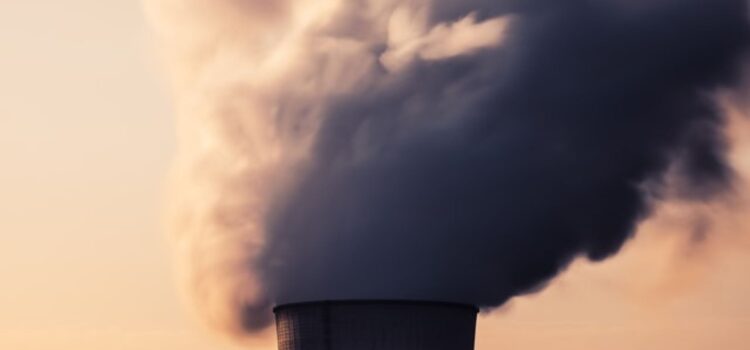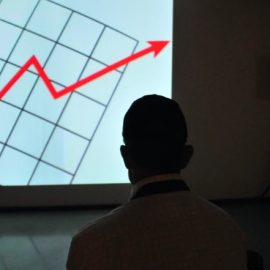

This article is an excerpt from the Shortform book guide to "Homo Deus" by Yuval Noah Harari. Shortform has the world's best summaries and analyses of books you should be reading.
Like this article? Sign up for a free trial here .
Are there any negative effects of economic growth? Do you think the positives of economic growth outweigh the negatives?
Economic growth is heralded as the solution to most problems, from national crises to personal issues, but it’s not without its perils. There are two negative effects of economic growth: resource depletion and ecological collapse.
Keep reading to understand the negative effects of economic growth.
What Are the Negative Effects of Economic Growth?
In the modern era, nations focus on constant economic growth, using the concepts of credit and currency. Because economic resources are no longer finite, countries now look to solve problems by creating products, investing in research, and invigorating the economy. This is essential for three reasons:
- Quality of living: More production leads to more consumption, which can raise the standard of living for average citizens.
- Population growth: If your country is growing at a rate of 1.4%, then your economy must grow at a rate of 1.4% or higher. If it doesn’t, your nation won’t have the resources to ensure standard of living.
- Bolstering of the lower class: As the economy expands, it creates more opportunities and resources for the lower class. If it doesn’t expand, the only way to support the lower class is to take resources away from the wealthy, which could lead to class warfare.
Economic growth is heralded as the solution to most problems, from national crises to personal issues. Consider the following examples:
- National: If countries such as Congo and Myanmar could maintain a healthy economic growth rate, they could raise the standard of living and create an educated, well-versed, and prosperous middle class.
- Personal: If a struggling married couple made more money, they could resolve their fights over their limited space by buying a bigger house, then attend expensive marriage counseling to get their marriage back on track.
Today, economic growth is central to every modern religion, political party, and social movement because money equates to power. Regardless of economic philosophy or political affiliation, leaders around the world champion economic growth as a barometer of their success.
The demand for economic growth on both a personal and national level often creates ethical and moral dilemmas. For example, a young lawyer’s father has a stroke and requires constant care. She has a choice: Give up a six-figure salary to provide care for her father, or hire a caregiver. If she gives up the salary, she can ensure that her father gets loving care, but she loses her career. If she hires the caregiver, she keeps her career but can’t ensure that her father is given the best care.
Resource Depletion
As the economy continues to grow, many fear that humanity will exhaust Earth’s resources. However, while raw materials will eventually be exhausted, humanity now relies on knowledge and energy to power the economy and find new ways to survive.
For example, while humans once relied on oil and coal for power, new developments in wind and solar energy remove humanity’s strict reliance on raw materials and give corporations a sellable resource that will never deplete.
Ecological Collapse
While humanity will likely solve the problem of resource depletion, constant economic growth does threaten to destroy the planet’s environment. As the CO2 emissions rise and forests continue to disappear, we risk a complete ecological meltdown that could destroy economic, political, and social structures.
To slow down the rate of destruction, we would need to slow down the rate of technological advancement and economic growth. However, because the world now runs on constant growth, humanity presses onward faster than ever before. In fact, many justify the rate of advancement by explaining that it will allow us to find more solutions to problems as they arise. However, with the rate of growth where it is today, humanity needs to make significant discoveries every few years to prevent ecological disaster.
For example, greenhouse gas emissions have risen exponentially over the last century because of technological advancements in manufacturing, transportations, and agriculture, causing the Earth’s temperature to rise at an alarming rate. Politicians refuse to impose drastic regulation out of fear that it would limit economic growth. This leaves humanity to rely on frequent scientific breakthroughs to combat continually rising CO2 levels.
Even if we can produce scientific solutions, these solutions will likely be reserved for the richest in society, leaving the poorest countries and citizens to suffer. Wealthy nations and families can rely on technology to save them from impending disaster, freeing them from the concerns associated with constant growth.
For example, the pollution levels in Beijing have made the city dangerous to live in. This led to the creation of the air purification market, a lucrative business that caters to the wealthiest citizens of the city. While rich families and well-funded institutions can afford the expensive equipment necessary for the systems, poorer citizens have to directly combat the health issues associated with the poor climate.

———End of Preview———
Like what you just read? Read the rest of the world's best book summary and analysis of Yuval Noah Harari's "Homo Deus" at Shortform .
Here's what you'll find in our full Homo Deus summary :
- Why technology is replacing humanist ideals
- How previous generations relied on prayer to deal with serious problems
- How AI and algorithms are going to run the world






